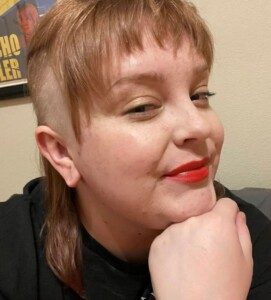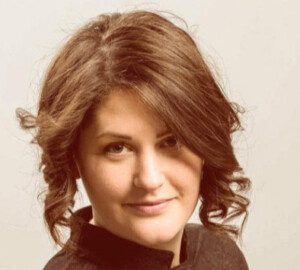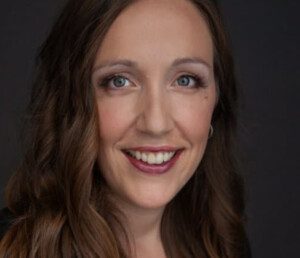“Autistic owners don’t run their companies by themselves” – this is the outrageous claim of an article about autistic entrepreneurs.
Does autism prevent someone from running a business entirely on their own?
Yes – but only in some cases.
The article about autistic entrepreneurs on cnbc.com continues: “Support from family members to interact with the public, take orders and handle marketing and billing is vital.”
Yes, it’s vital, but not all autistic entrepreneurs need this kind of help.
The article paints the picture that there’s no such thing as an autistic adult who can independently run a business including interacting with the public.
There are autistic people who work in retail as employees, which means plenty of public interaction.
I myself, a clinically diagnosed Autistic, worked as a cashier for my first job at 16, dealing with customers.
I’m also a former personal trainer for a health club: plenty of interaction with the public.
The idea that every autistic entrepreneur needs help with billing is incredibly outdated.
A simple googling of “autistic accountant” will bring up links to articles quoting actual Autistics who are accountants.
Talking Hairs
Demi Rivera, 28, diagnosed with autism at 25, runs Talking Hairs, a hair salon in Denver, CO, with a mostly autistic clientele.
“I do not employ or use any cognitive assistance in running my shop,” says Demi.
“I did all the decorating, supplying, cleaning, organizing, marketing, billing, bookkeeping, licensure and education all on my own.
“I have not had very much help from my family. While they happily support what I’m doing, they rarely get involved in any way past giving their opinion of decor.
“I actually firmly believe most people probably assume I have a lot of help, when the fact is I’ve done it all myself.
“I’ve moved studios twice, once with a broken kneecap in a leg brace. I had family physically help me with some of that.
“All of my social media and advertising is done by me. Everything is.
“I often joke that I’m not just a hairstylist, but a receptionist, janitor, laundry person, stocker, interior decorator, banker, accountant and social media manager, all at once. It’s quite daunting at times, but I do it alone!”
Award Winning Cake Artist
Justine Martin, 31, was diagnosed with ASD in adulthood. She founded and owns Guilty Pleasures Bakeshop, a luxury bakery in Northern Ontario.
Justine explains, “I do have an administrative assistant now (for the last two years) who mostly runs the ‘executive functioning’ side of my business, but this is strictly so that I have more time to create and teach.
“For the first five years of my business, I managed all administrative duties alone, while also working to create product, etc.
“I have also helped many friends to launch or streamline their businesses and have a few whom I still manage their email in-boxes as well as their public relations.”
Curriculum & Culture
Victoria Jones was diagnosed with autism at 30.
A former school teacher, she’s the founder of Curriculum & Culture, which, as she explains, “offers culturally responsive English Language Arts curriculum that children of all shades can see themselves in.
“We also provide virtual Reading Enrichment classes for students, and a class that teaches homeschooling parents how to teach ELA at home.
“Although I say ‘we’ a lot in regard to my business, I actually operate it completely on my own.”
Below, in Victoria’s words, are her responsibilities.
- Create all of my own curriculum.
- Develop and teach all courses.
- Write all posts for the Curriculum & Culture book blog.
- Create all content for social media (Instagram).
- Create all marketing posts and ads for Facebook.
- Do SEO research and monitor Google Analytics.
- Update my website with new content (I also created my website myself).
- Periodically apply for small business grants.
- Do my own accounting and taxes.
Victoria adds, “I will say that I burn out sometimes and have to take breaks from working on my business, but that has more to do with the fact that I have a two- and four-year-old (also autistic) at home and a lot of other responsibilities on my plate.”
Website Design Studio
“It’s an online business that I operate 100% on my own,” says Jamie Gonsioroski, who runs a brand strategy and website design studio from her home in Minnesota.
“Aside from a contractor I’ve hired to help me with my bookkeeping and accounting [a common practice even among neurotypical business owners], it’s just me doing it all,” says Jamie, 31, who was diagnosed autistic in adulthood.
“I do have some challenges with executive function, but I’m able to set up processes that allow me to effectively run and grow my business.”
Ash Esthetics
“When it comes to running my blogging business, I do everything myself,” says Ashley Gartner, 24, diagnosed with ASD at 24.
Her site is devoted to holistic skincare, and she has also worked as a master esthetician.
“I didn’t know a thing about blogging before I started my site, so I did a ton of research on how to create a successful blog,” continues Ashley.
“Blogging is very hard work, especially in the beginning, but I enjoy it a lot.
“I sometimes work 10 hour days making content, marketing, creating printables and researching.”
Editorial Services/Content Creator
Tired of the traditional workplace grind, I developed a flourishing home-based editorial business which required me to figure out how to recruit clients and create an efficient billing system.
I also created this website, which has eliminated the need for client work.
The only help I’ve ever had is a website developer because I’m not techy and don’t know coding.
“I’ve worked with many successful autistic adults, many of whom have started companies and managed businesses on their own,” says Dr. Jessica Myszak, licensed psychologist, and director of The Help and Healing Center, whose practice is mostly autism assessment for adults.
“Being autistic has not prevented them from managing all of the aspects of their business, which have included companies in the areas of consulting, resale, dog-training, therapy, education, tech and more.
“One memorable person I evaluated was an older adult who had started and run a successful, sought-after school for gifted children for many years.”
Autism Does NOT Cause Impairment with Comprehension
The cnbc.com article implies that autism is an impairment of comprehension skills.
“Autism has strengths and challenges, but difficulty learning and comprehending are not part of the autistic profile unless a person also has a comorbid diagnosis, such as an intellectual disability,” says Dr. Myszak.
There may be autistic people who run a business – with help from a parent, for example – but who also have an intellectual impairment such as Down syndrome, but the low IQ is not the result of the autism.
An autistic business owner may also have ADHD, which impairs executive function, necessitating assistance in areas demanding cognitive skill.
But this doesn’t mean that every single business owner with both ASD and ADHD requires this kind of assistance.
It’s very irresponsible for a reporter or journalist to write in a way that lumps ALL autistic people in the same boat.
We are not all alike. It’s a SPECTRUM, and we often say, “If you’ve met one autistic person you’ve met one autistic person.”
Here is the link to the cnbc.com article. It features four autistic entrepreneurs.
For these profiled autistic entrepreneurs, help from family is necessary to operate their business ventures.
But please — despite the reporter’s narrative — do not generalize and assume that “Autistic people can’t run a business without help.”
 Demi Rivera, a licensed cosmetologist, owns and operates Talking Hairs, a Denver, CO hair salon that accommodates autistic, other neurodivergent and neurotypical adults and children. Demi makes accommodations to fit each client’s individual sensory needs. Follow her on Instagram: @talking_hairs.
Demi Rivera, a licensed cosmetologist, owns and operates Talking Hairs, a Denver, CO hair salon that accommodates autistic, other neurodivergent and neurotypical adults and children. Demi makes accommodations to fit each client’s individual sensory needs. Follow her on Instagram: @talking_hairs.
 Owner of Guilty Pleasures Bakeshop, Justine Martin is a Food Network champion and serial cake competitor. In 2020, she was named Cake Artist of the Year by the Ontario Wedding Awards and was a finalist for Rising Star of Year at the American Cake Awards. Follow her on Instagram.
Owner of Guilty Pleasures Bakeshop, Justine Martin is a Food Network champion and serial cake competitor. In 2020, she was named Cake Artist of the Year by the Ontario Wedding Awards and was a finalist for Rising Star of Year at the American Cake Awards. Follow her on Instagram.
 Victoria Jones is an educator and the founder of Curriculum & Culture. She is passionate about sharing her love of books with students and inspiring them to develop an authentic love.
Victoria Jones is an educator and the founder of Curriculum & Culture. She is passionate about sharing her love of books with students and inspiring them to develop an authentic love.
 Jamie Gonsioroski is a late-diagnosed autistic woman and the owner of Jamie Richelle Designs. She runs a brand and website design studio that helps heartfelt, people-first businesses stand out with strategic visuals and messaging. Her approach is no-fuss and simplifies branding and web design. Follow her on Instagram.
Jamie Gonsioroski is a late-diagnosed autistic woman and the owner of Jamie Richelle Designs. She runs a brand and website design studio that helps heartfelt, people-first businesses stand out with strategic visuals and messaging. Her approach is no-fuss and simplifies branding and web design. Follow her on Instagram.
 Ashley Gartner runs Ash Esthetics, a holistic skincare site where she shares her expertise in skincare, a passion she’s had since age 12. “I was determined to learn everything there is to know about skin,” says Ashley, who’s licensed as a master esthetician. “My main goal is to just help people because I know how hard it is to have healthy skin.”
Ashley Gartner runs Ash Esthetics, a holistic skincare site where she shares her expertise in skincare, a passion she’s had since age 12. “I was determined to learn everything there is to know about skin,” says Ashley, who’s licensed as a master esthetician. “My main goal is to just help people because I know how hard it is to have healthy skin.”
 Lorra Garrick has been covering medical and fitness topics for many years, having written thousands of articles for print magazines and websites, including as a ghostwriter. She’s also a former ACE-certified personal trainer. In 2022 she received a diagnosis of Level 1 Autism Spectrum Disorder.
Lorra Garrick has been covering medical and fitness topics for many years, having written thousands of articles for print magazines and websites, including as a ghostwriter. She’s also a former ACE-certified personal trainer. In 2022 she received a diagnosis of Level 1 Autism Spectrum Disorder.
Dr. Jessica Myszak, a psychologist who specializes in autism assessment for both children and adults, is the founder of Autistic Support Network. She sees clients in-person in the Chicago area and over telehealth in 31 states. Learn more about her practice at helpandhealingcenter.com.
.











































